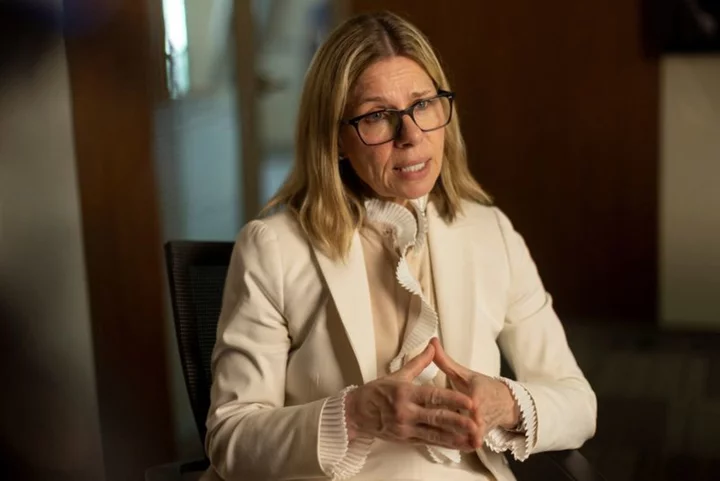By Karen Lema
MANILA The World Bank will press for more grants and new capital from member countries, even as it leverages its balance sheet to scale up lending for responses to climate change and other global crises, its managing director of operations said on Tuesday.
The lender will rally donor support for a newly established crisis facility for the world's poorest countries that face overlapping global crises, including severe climate events, Anna Bjerde said in an interview.
"We hope to be able to really conclude and have a very strong interest in funding this by the end of the year," Bjerde said, adding that multiple billions of dollars were needed for the crisis facility.
That facility sits within the International Development Association (IDA) fund, the World Bank's fund for the poorest countries. The last replenishment was fast depleted by the pandemic.
COVID-19 pushed many poor countries into debt distress as they were expected to continue servicing their obligations in spite of the massive shock to their finances.
Bjerde is hoping for major progress in courting interest in the facility at the annual meetings of the International Monetary Fund (IMF) and World Bank in Morocco in October.
"We need to really get grants from developed and higher income countries, rich countries, to provide resource transfers to the lower income countries," she said.
The World Bank, whose 25-member executive board on May 3 elected a new president, wants to increase lending to ensure it can better tackle issues such as climate change, pandemics and conflict.
"We need to continuously work on what we call under the evolution roadmap - a better bank but also a bigger bank," Bjerde said.
The World Bank's "evolution road map" calls on its management to develop specific proposals to change its mission, operating model and financial capacity.
It also prescribes exploring options such as a potential new capital increase to unlock more lending and new financing tools.
The capital increase was an ongoing conversation that needed engagement with shareholders, Bjerde said.
"There's a lot of good efforts by World Bank management to look at all opportunities to maximise capital and freeing up resources internally first, through balance sheet optimisation and so forth."
U.S. Treasury Secretary Janet Yellen in April said the next steps the World Bank must take include potential changes to allow the bank's private sector and poor country lending arms to lend to sub-sovereign entities such as cities and regional authorities.
Sub-national lending, Bjerde said, was something the World Bank "would very much like to explore further".
"It needs to be part of the toolkit and the solutions, because we need to work with both national governments and sub national governments to be able to tackle and address some of these pressing needs and urgent priorities," Bjerde said.
(Reporting by Karen Lema; Editing by Jacqueline Wong)

